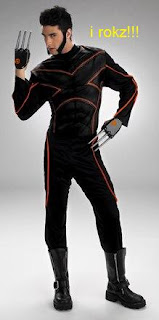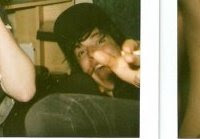
Ever since Christopher Nolan took up the directorial reigns of the two latest Batman films, superhero movies have taken a turn for the better. Basic, one dimensional superheroes fighting the good fight have been replaced with dark and brooding creatures, with character development as intrinsic as the next action sequence. The change is not necessarily an unwelcome one and has allowed superhero films to break free from their origins of spandex stereotyping to the forefront of mainstream culture. X Men Origins: Wolverine adheres to his now staple formular by focussing on the series most developed character, Gabe Logan (Wolverine), a mutant with extraordinary strength and healing powers, but ironically suffers from the mutations of the three previous X-Men films, where sumptuous graphics are favoured over plot.
The film covers the events leading up to Wolverines discovery by the X-Men group in the first X-Men film. The first sequence is a beautiful, grainy montage of Gabe and his brother, another mutant, fighting through various American wars to the point that
The film is inadequately paced, with viewers lost amid a flurry of set pieces and shiny claws, leaving in its wake a bloody and tattered excuse of a plot. Critical points in Wolverine’s development are highlighted with a certain directorial immaturity, whereby a viewer not read in the comics would be left confused. A glaring example is when Wolverine is given a leather jacket by two kindly old folk who take him in. The stylish apparel is an iconic piece of kit that we associate with Wolverine, but why the instance is given predominance in the scene is anybody’s guess. New characters are introduced for a criminally brief period, which is a shame for they form the most interesting action sequences of the film, despite a gratingly annoying performance from one-trick actor Ryan Reynolds (Van Wilder/Smokin’ Aces) playing razor-sharp, dual-sword wielding Deadpool, whose performance is about as sharp as a butter knife.
Where the film shines is in its CGI, as explosive as it is visceral. The sound goes hand in hand with the effects beautifully and every punch, kick and swipe onscreen is felt with full force. However herein lies the age-old issue of FX dominating over plot, where the budget is blown on graphics in the vain hope of covering major plot holes.
Whether the sight of a grizzled and sweaty Hugh Jackman cavorting through lavish backdrops makes you reach for the nearest cold shower or the gym card, leaving your brain at home will ensure a violent and visually sumptuous treat.
***

